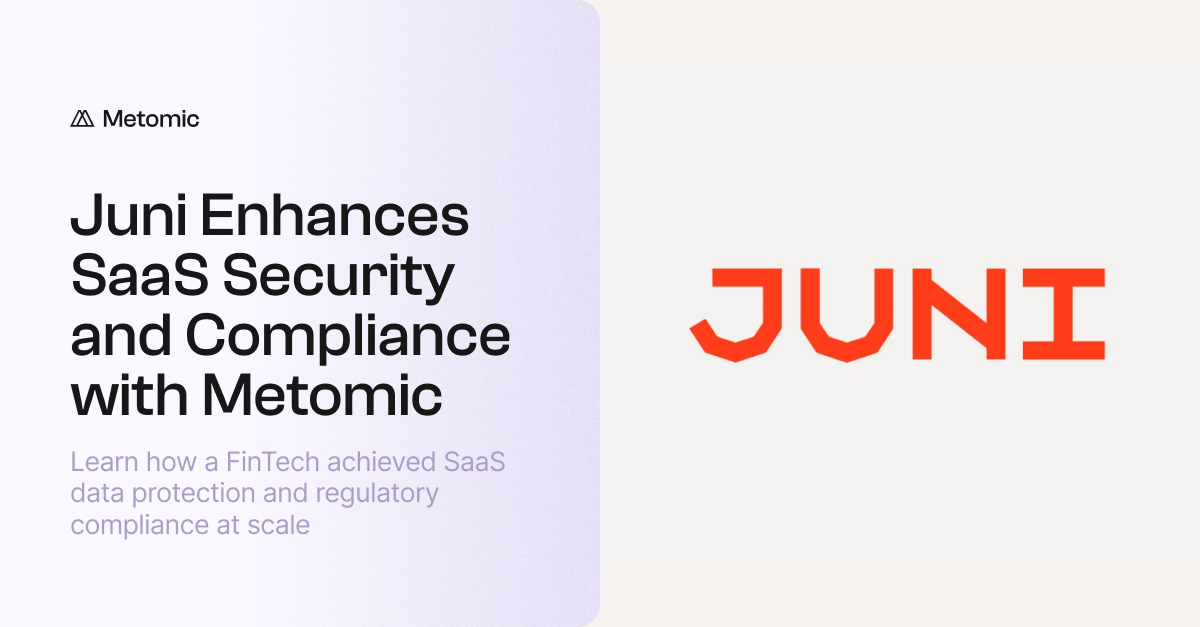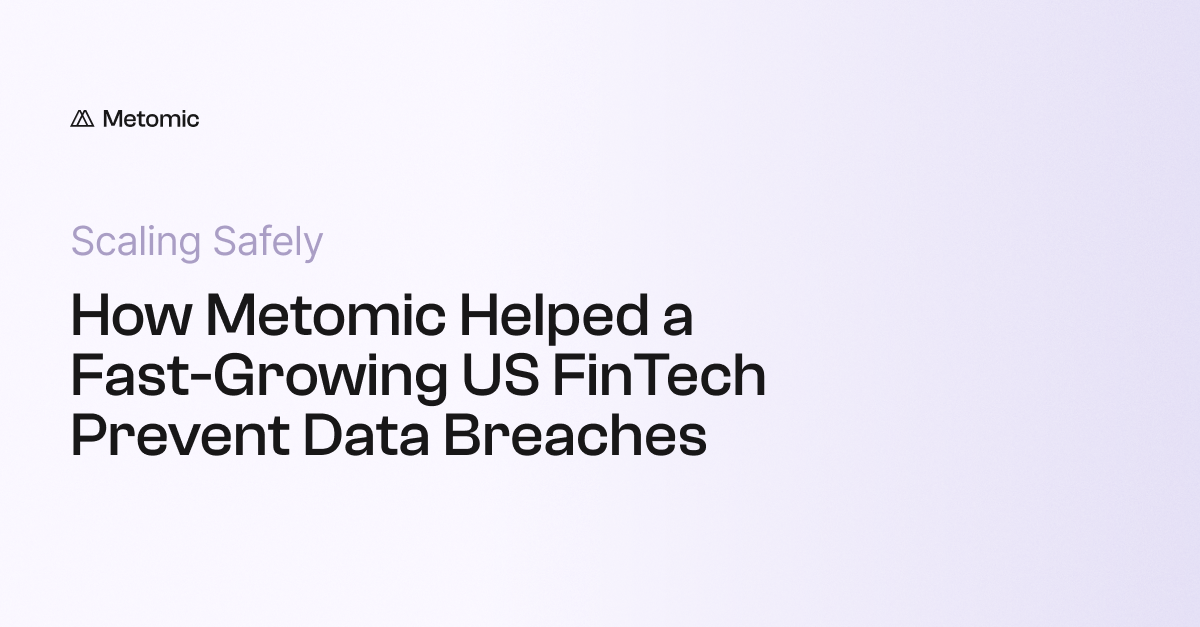8 Essential Healthcare Regulations Organisations Must Comply With
Navigate complex healthcare regulations with ease. Discover essential compliance guidelines for the UK and US, including HIPAA, GDPR, and more. Protect patient data, avoid hefty fines, and build trust.

8 Essential Healthcare Regulations Organisations Must Comply With
Navigate complex healthcare regulations with ease. Discover essential compliance guidelines for the UK and US, including HIPAA, GDPR, and more. Protect patient data, avoid hefty fines, and build trust.

Key points
- Understanding healthcare regulations is crucial for safeguarding patient data and ensuring high-quality care.
- Non-compliance can lead to severe penalties and impact patient trust and organisational reputation.
- Healthcare regulations differ between the UK and US, affecting how organisations must approach compliance.
- Metomic offers solutions to streamline compliance management and reduce the risks associated with regulatory challenges.
Navigating healthcare compliance can often feel like moving through a complex maze. But getting to grips with these regulations is crucial for every organisation in the industry.
These rules are in place to protect patient data, ensure high-quality care, and prevent fraud. Not only does staying compliant help you avoid hefty fines, but it also builds trust with your patients and partners.
With different regulations across regions, it’s important to understand what each one involves and how it impacts your operations.
In this article, we’ll break down the eight essential healthcare regulations you need to know about, explaining why they matter and how you can keep on top of compliance.
Why healthcare regulations are vital
Healthcare regulations are crucial for keeping patient information confidential and secure.
They ensure that sensitive data is protected from unauthorised access, which is increasingly important, given that healthcare was the second most breached sector in 2023, accounting for 20% of all breaches.
Compliance also plays a key role in maintaining high care standards and reducing fraud. Without these regulations, the risk of costly and damaging fraudulent activities would rise.
Regulations mandate comprehensive security measures, helping to prevent breaches and maintain trust.
By adhering to these standards, organisations not only safeguard patient data but also reinforce their overall data security and integrity.
The 8 essential healthcare regulations organisations must comply with
1. HIPAA (Health Insurance Portability and Accountability Act)
Overview
HIPAA is designed to protect patient information, ensuring it remains confidential and secure. It sets national standards for electronic healthcare transactions and mandates safeguards for sensitive data.
Compliance Requirements
To comply with HIPAA, organisations must implement administrative, physical, and technical safeguards to protect patient data. Regular training for staff, conducting risk assessments, and having contingency plans are also crucial.
Risks of Non-Compliance
Non-compliance with HIPAA can lead to hefty penalties. In 2024, HIPAA violation penalties can range from $137 to $68,928 per violation, with annual caps of up to $2,067,813 depending on the severity.
2. HITECH Act (Health Information Technology for Economic and Clinical Health Act)
Overview
The HITECH Act promotes the adoption and meaningful use of health information technology, aiming to improve healthcare quality, safety, and efficiency through increased use of Electronic Health Records (EHRs).
Compliance Requirements
Organisations must achieve meaningful use of EHRs, protect electronic health information, and report on quality measures. This involves regular audits, encryption of data, and ensuring systems are interoperable.
Risks of Non-Compliance
Failing to comply with the HITECH Act can result in financial penalties and loss of incentives. Non-compliance may also lead to increased scrutiny and audits from regulatory bodies.
3. 21st Century Cures Act
Overview
According to the FDA, the 21st Century Cures Act focuses on ‘accelerating medical product development and bringing innovations and advances to patients who need them faster and more efficiently.’
Compliance Requirements
Organisations need to comply with provisions related to data sharing, privacy, and security. This includes making health data more accessible while protecting patient privacy.
Risks of Non-Compliance
Non-compliance can lead to delays in product approvals, legal actions, and financial penalties. It may also impact the trust and reputation of healthcare providers.
4. GDPR (General Data Protection Regulation)
Overview
The GDPR sets guidelines for the collection and processing of personal information from individuals who live in the European Union (EU), impacting healthcare organisations that handle EU citizen data.
Compliance Requirements
Healthcare organisations must ensure data protection by design and by default, conduct Data Protection Impact Assessments (DPIAs), and appoint a Data Protection Officer (DPO) if necessary.
Risks of Non-Compliance
Non-compliance can result in significant fines and legal actions. Since 2018-2024, the average GDPR fine was €2,142,712 (or about $2.34 million) across all countries.
5. CCPA (California Consumer Privacy Act)
Overview
The CCPA grants California residents new rights regarding their personal information and imposes various data protection duties on organisations.
Compliance Requirements
Organisations must provide notices at or before data collection, allow consumers to opt-out of the sale of their data, and ensure data access, deletion, and portability rights.
Risks of Non-Compliance
Non-compliance can lead to significant fines and settlements. In June 2024, the California Attorney General announced its third CCPA enforcement settlement, fining an online gaming company $500,000 for violating children's privacy provisions.
6. HITRUST CSF (Health Information Trust Alliance Common Security Framework)
Overview
HITRUST CSF is a certifiable framework that provides organisations with a comprehensive, flexible, and efficient approach to regulatory compliance and risk management.
Compliance Requirements
To comply, organisations must undergo rigorous assessments, implement best practices in information security, and achieve certification through validated assessments.
Risks of Non-Compliance
Failure to comply with HITRUST CSF can lead to vulnerabilities in data security, increased risk of breaches, and potential loss of trust from patients and partners.
Further reading:
HIPAA v HITECH v HITRUST: What are the Differences?
7. Information Blocking Rule
Overview
The Information Blocking Rule prohibits practices that are ‘likely to interfere with access, exchange, or use of Electronic Health Information (EHI).’
Compliance Requirements
Organisations must ensure that they do not unreasonably block information sharing and that their practices are transparent and in the best interest of patients.
Risks of Non-Compliance
Non-compliance can result in investigations and penalties, impacting the organisation’s operations and reputation.
8. Interoperability and Patient Access Final Rule
Overview
This rule aims to give patients better access to their health information and promote interoperability among healthcare providers and systems.
Compliance Requirements
Organisations must implement standardised APIs to facilitate data sharing, provide patients with electronic access to their health information, and comply with privacy and security standards.
Risks of Non-Compliance
Failing to comply can lead to penalties, reduced patient trust, and barriers in providing efficient and effective care.
Dangers of non-compliance
Non-compliance with healthcare regulations can lead to more than just hefty fines. It can severely damage patient trust, which is crucial for any healthcare provider.
When patients feel their data is not secure, they are less likely to engage openly and honestly with their healthcare providers. And in fact, 66% of people wouldn’t trust an organisation after they’d suffered a data breach.
Additionally, non-compliance can disrupt business operations, causing inefficiencies and increasing operational costs.
In essence, staying compliant not only avoids penalties but also ensures trustworthy, and efficient healthcare service delivery.
📝Report: Healthcare Data Crisis - Uncovering the Alarming Gaps in Data Security and Compliance
In our Healthcare Data Crisis report, we share new data - gathered through our data security platform - that highlights how insecure file-sharing practices are exposing large amounts of sensitive data.
You’ll discover:
- The critical security gaps in healthcare organisations’ file-sharing practice, including the fact that 25% of publicly shared files in healthcare organisations contain Personally Identifiable Information (PII).
- The common file-sharing mistakes being made by healthcare employees that are bringing about these security risks.
- How a Data Loss Prevention solution like Metomic can pinpoint where sensitive data is located and who has access to it, and automate the necessary actions to safeguard any exposed data.

How healthcare organisations can maintain compliance
Did you know that, on average, organisations spend 25% of their business revenue on compliance costs? While it might seem like a lot, this investment is crucial for protecting patient data, avoiding fines, and maintaining trust.
Staying compliant in healthcare can seem daunting, but it doesn't have to be. Start with some best practices like regular staff training and robust data encryption.
For long-term success, set up a dedicated compliance team to keep policies up to date and handle any issues as they arise.
By focusing on these strategies, you can make compliance a seamless part of your operations.
Differences in regulations: UK vs. US
When it comes to healthcare regulations, the UK and US take slightly different paths.
In the UK, GDPR is all about strict data privacy, while in the US, regulations like HIPAA and the HITECH Act focus more on securing healthcare data.
If you’re operating in both regions, it’s important to understand these nuances to keep everything running smoothly.
Compliance challenges in different regions
Navigating healthcare regulations isn’t a one-size-fits-all situation. In the UK, the broad scope of GDPR can be a real challenge, while in the US, the mix of federal and state laws can make compliance feel like a bit of a maze. Each region has its own set of hurdles to jump.
Upcoming changes in healthcare regulations
New and updated regulations to watch for
Healthcare regulations are always on the move. In 2024, keep an eye on updates to the CCPA and new developments with GDPR (such as the temporarily shelved Data Protection and Digital Information bill).
Staying in the loop with these changes will help you keep your compliance game strong.
Further reading:
How Can Organisations Keep up with New Regulations in the Healthcare Sector?
Impact on healthcare organisations
These changes aren’t just for show—they could bring tougher data protection rules and higher penalties if you slip up.
Being proactive and staying ahead of the curve can save your organisation from potential headaches down the line.
Challenges with keeping up compliance
Common obstacles
Keeping up with compliance can sometimes feel like chasing a moving target. Regulations change fast, and many organisations struggle with outdated policies, lack of training, and the challenge of managing different rules across regions.
Strategies for managing regulatory changes
The key to staying compliant is to be proactive. Regularly update your compliance strategies, keep your team trained, and have a system in place to monitor and respond to regulatory changes. By staying on top of things, you’ll be better equipped to handle whatever comes your way.
How Metomic can help
Metomic plays a crucial role in helping healthcare organisations navigate complex regulations by enhancing data security and control across SaaS platforms.
Here’s how Metomic can support your compliance strategy:
- Data Detection: Metomic automatically identifies and classifies sensitive information, including Protected Health Information (PHI), within your SaaS applications, ensuring that critical data is well protected.
- Automated Access Controls: It enforces data security policies by monitoring user activities and managing access to sensitive data, helping to prevent unauthorised access and sharing.
- Data Retention Management: Metomic applies automated data retention policies, ensuring that data is stored only as long as necessary to maintain regulatory compliance.
- Real-Time Alerts: The platform provides real-time alerts for potential compliance risks and offers automated remediation options, such as data redaction, to address issues promptly.
Integrating Metomic with your existing compliance measures will further strengthen your organisation’s ability to meet healthcare regulations effectively.
Getting started with Metomic
Free risk assessment scans
Metomic offers free risk assessment scans to help you spot any weak points in your healthcare organisation’s data security.
These scans focus on popular SaaS platforms like Google Drive, Slack, and ChatGPT, giving you practical tips on where to tighten up your compliance and keep sensitive data safe.
Book a personalised demo
Curious about how Metomic can boost your compliance efforts? Book a personalised demo with our security experts.
They’ll guide you through the platform’s features, showing you exactly how Metomic can enhance your data protection and provide tailored solutions for your healthcare needs.




